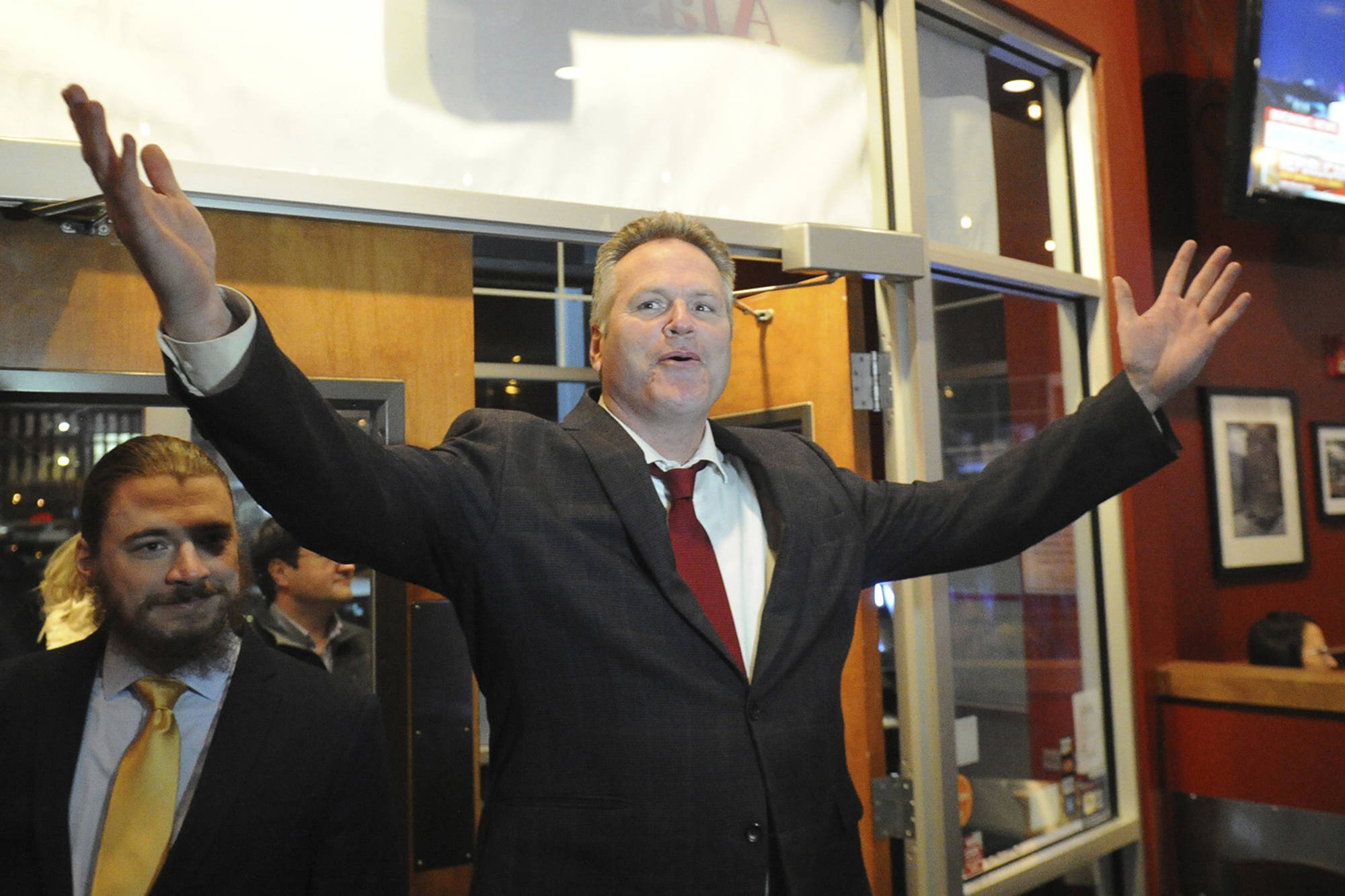Mike Dunleavy is heading into his first legislative session as Alaska’s governor, faced with trying to implement campaign promises involving politically thorny issues.
During the campaign, the Republican former state senator said he wanted to reduce state spending and limit government growth. He said he wanted to pay residents a full dividend from the state’s oil wealth fund following years of reduced payouts and give them the amount they missed out on during those years.
Dunleavy also said he wanted to repeal a sprawling criminal justice overhaul that he said the public had lost faith in. The legislative session starts Jan. 15.
Budget
Lawmakers have struggled in recent years with how best to address a budget deficit exacerbated by low oil prices, blowing through billions in savings amid gridlock before deciding in 2018 to begin using earnings from the oil wealth Alaska Permanent Fund to help fill the hole.
[State departments have an eye toward budget hikes]
This was significant because, while legislators had long been able to take money from fund earnings, the same pot used to pay dividends, they were reluctant to do so for fear of being accused of raiding it.
Dunleavy’s initial budget draft works off the budget his predecessor, former Gov. Bill Walker, handed off before leaving office.
But it’s different from Walker’s plan in key ways: It is based on a more conservative oil price and calls for paying out a full permanent fund dividend this year. Most Alaska residents qualify for the annual check.
Dunleavy’s draft was billed as a starting point, released to comply with a statutory deadline that arrived less than two weeks after Dunleavy took office.
Dunleavy’s budget office said the draft leaves a $1.6 billion deficit.
During the campaign, critics said Dunleavy provided few specifics on what he would cut. During the last session, there was pushback that spending in some areas already had been cut too far.
Dunleavy is expected to propose amendments in the coming weeks. His budget director said all areas of spending are subject to review.
Incoming Senate Finance Committee co-chair Republican Natasha von Imhof said she was awaiting more details.
Democratic Sen. Bill Wielechowski suggested looking at eliminating or significantly reducing per-barrel oil tax credits to help ease budget concerns.
Dividend
Lawmakers in 2018 passed a law that seeks to limit how much can be taken from permanent fund earnings for dividends and government spending but did not specify how the split should be made. Under the new law, a withdrawal of $2.9 billion is expected for the coming fiscal year, though critics have said legislators can ignore that. Dunleavy’s draft plan would earmark about $1.9 billion of that amount for dividends.
[Security concerns prompt closing of dividend applications]
Dunleavy’s budget draft would return to a longstanding dividend calculation that has not been followed amid the deficit debate. In 2016, Walker cut the amount available for checks, an action the Alaska Supreme Court upheld. Lawmakers limited subsequent payments.
Dunleavy has said he wants to pay Alaskans the money they missed out on. That, combined with a full payout this year, could total about $4.3 billion, according to one preliminary estimate.
Dunleavy has said the state can afford that using fund earnings and that he sees it as a step toward building trust with Alaskans. As of Nov. 30, the earnings reserve account was valued at about $17 billion.
Back payments were not included in the budget draft; Revenue Commissioner Bruce Tangeman said separate legislation may be needed to handle the issue. Tangeman said it’s an issue Dunleavy plans to pursue.
Democratic Sen. Donny Olson said he was glad Dunleavy proposed a full dividend and wants to work with him on a way to pay back the reduced checks. He said the checks are important to his rural constituents.
Republican Sen. John Coghill said resolving debate over the dividend will be critical.
Coghill said he does not favor repaying money from the past three years and expects a “painful, deliberate and highly volatile discussion” on a full dividend.
Crime
Dunleavy was joined by a number of legislative candidates in calling for repealing a 2016 criminal justice overhaul that critics saw as too soft on crime.
[Looking back at the year in crime]
The law, SB91, has been changed in response to public concerns. But Dunleavy has said SB91 should be repealed and replaced with a bill that fills in any holes.
Incoming Senate Majority Leader Mia Costello, an Anchorage Republican, wants to repeal and “start over.”
“That’s something that I think that we owe the public, and I think it’s something that we will deliver on,” she said.
Democratic Rep. Matt Claman, who has been chair of the House Judiciary Committee, does not see a mandate to repeal a bill that he said has already been fixed.
The measure includes provisions he said the public supports, such as increased sentences for murder and increased victims’ rights.
Dunleavy also during the campaign said he supported looking at programs to help people struggling with addiction in response to Alaska’s opioid problem.
Claman said the priority behind efforts to change the criminal justice system has been prison for violent offenders and trying to focus on rehabilitation for nonviolent and first-time offenders.
The state needs to look at whether any actions it takes improve public safety and make wise use of limited public safety resources, he said.
• This is an Associated Press report by Becky Bohrer.

